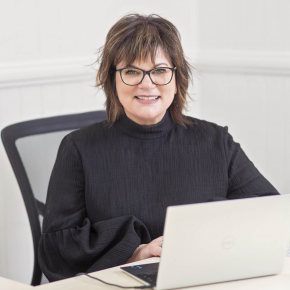Liz Wilkes – ABC Radio & abc.net.au
Midwife and Managing Director of My Midwives
Qld government promises $42m for fly-in obstetricians, telehealth, amid rural maternity care shortage.
Queensland will expand its team of flying obstetricians and offer expectant mothers in rural areas more telehealth care to help them give birth closer to home.
State Health Minister Shannon Fentiman on Friday announced next week’s state budget would include $42 million for rural and regional maternity services.
Gladstone Hospital’s birthing unit has spent several months on bypass while women in communities such as Biloela and Cooktown have also been forced to travel to give birth due to staff shortages.
“Everything we do is about patient safety but where we can, using telehealth, as well as outreach, as well as wonderful local maternity services, all of this will make a big difference for families,” Ms Fentiman said.
She said the expansion of outreach obstetrics and gynaecology services would reduce the need for women to travel, while some funding would be used to attract more workers to the regions and to train their staff.
The state’s flying obstetrics service, based in Roma, would receive an extra $10 million.
Recruitment a ‘global’ challenge
Ms Fentiman said a “global workforce shortage” during the COVID-19 pandemic had made it harder to recruit and retain staff, but the government was offering financial incentives to encourage medical practitioners to move to regional Queensland.
Ms Fentiman said the government would work with midwives, obstetricians and women in regional communities to implement the right model of care for each area.
Liz Wilkes, managing director of the nation’s largest private midwifery practice My Midwives, said the absence of birthing services in small towns made it harder for those communities to attract professionals in the first place.
“If a small area doesn’t have accessible maternity services, and particularly birthing services, then women will often put that on a bypass and that won’t be the place they actually go to live and work,” she said.
But she said the government’s investment was “just the start of a need for more widespread system change”.
“The state is in a fairly dire state, to put it bluntly, and the $42 million will certainly be a great start to develop services for women closer to home,” Ms Wilkes said.
Remote models of care
Ms Wilkes said telehealth and outreach services would be effective at screening women to ensure expectant mothers with more complex needs could be transferred to areas with more support.
“The flying obstetrics services are well versed at being able to provide care on the ground when there’s an emergency situation, so I think that’s quite appropriate and is normal in most other parts of the world,” she said.
But Gino Pecoraro, president of the National Association of Specialist Obstetricians and Gynaecologists, said outreach and telehealth services had limitations.
“There’s certainly a role for it and I think there is good data from the flying [obstetricians] that when you do it their way and follow the strict rules they have, it can extend the service, but it can’t fix everything,” he said.
Dr Pecoraro said practitioners had made “quite clear” requests to the government that “seem to have fallen on deaf ears”.
“They want access to private obstetrics so they can deliver their private patients in the public hospital,” he said.
“They want a change to the model the public hospitals are using, so they’re not just called in at the last minute when everything’s gone pear-shaped and they are there to salvage and be used for their insurance policy.”
A ‘positive’ step
Dr Sandy Donald from the Australian Services Union Together branch said the government’s funding announcement was “positive”.
“In particular, because we need to identify what changes will most benefit women having babies before deciding specific solutions,” he said.
“There needs to be a more consistent and transparent approach to maternity services, so doctors know exactly their role and responsibilities.
“We also need better structured information on risks and benefits so that expectant mothers can make an informed decision on their birthing options”.
But Opposition health spokesperson Ros Bates criticised the government for its “deafening silence on when any [maternity] services will reopen”.
“Just throwing money at this situation is nowhere near the solution Queenslanders need,” she said.
The government will host a second roundtable meeting to address the issue this month.
